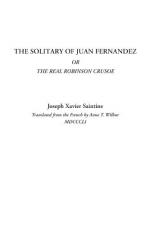It was a grape from the promised land.
This marvellous country had been named, in advance, Eldorado.
Among the bold Argonauts of these two centuries, there was a contest as to who should first raise his flag over this new Colchis, defended, it was said, by the Apaches, a terrible, sanguinary and cannibal race, whom Cortez himself could not subdue. This land of gold some had located in New Biscay or New Mexico; others, in the pretended kingdoms of Sonora and Quivira; then, after several ineffectual attempts, the possibility of reaching it was denied; learned men, from the various academies of Europe, proved that the Eldorado was not a country, but a dream; on this subject the Old World laughed at the New; the Argonauts became discouraged, and during a century the subject was named only to be ridiculed.
And yet, in spite of sceptics and scoffers, the Eldorado existed. It existed where tradition had placed it, on the shores of this Vermilion Sea, now the Gulf of California. For once, popular opinion had the advantage over scientific dissertations and philosophic denials; there, where, according to the Dictionary of Alcedo, nothing had been discovered but mines of pewter! where Jacques Baegert had indeed acknowledged the presence of gold, but in meagre veins; where Raynal had named as curiosities only fishes and pearls, declaring, in California, the sea richer than the land; where in our own times M. Humboldt discovered nothing but cylindrical cacti, on a sandy soil, remained buried, as a deposit for future ages, this treasure of the world, which seemed to be waiting in order to leave its native soil, the moment of falling into the hands of a commercial and industrious people, that of the United States.
This Eldorado, Stradling sought in vain; he therefore decided to pursue his route along the coast of Mexico, now under the French flag, when he found an opportunity for traffic with the natives, colonists or savages; now under the English flag, when he wished to exercise his trade of corsair, an easy profession, for since the disaster of Vigo, the Spanish had abandoned their transatlantic possessions to themselves.
The Spanish soldiery of America then found themselves, in the presence of European adventurers, in that state of pusillanimous inferiority in which had been, at the period of the conquest, the subjects of the Incas and Montezuma before the soldiers of Cortez and Pizarro. The time was not already far passed, when a few bands of freebooters, from France, England and Holland, had well nigh wrested from his Majesty, the King of Spain and the Indies, the most extensive and wealthy of his twenty-two hereditary kingdoms.
Stradling was following in the footsteps of these freebooters.
Recently, two little cities on the coast had been put under contribution for the supplies of the Swordfish; there had been resistance, a threatened attack, a parley, and capitulation; in this affair, the young mate had nobly distinguished himself both as a combatant and a negotiator, and yet the captain had not deigned to give him a share in his distribution of compliments.




